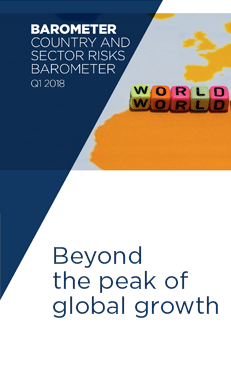Brazil's economic woes: any chance of a kick start?

The archetypal emerging country, Brazil passed the test of the great crisis of 2009 with flying colours. Four years on, social protests have begun to highlight the failure of its growth model. While inequality is on the decline, it remains significant. Because of a tight labour market and major gaps in infrastructure, the infamous "Brazil cost" has placed a heavy burden on business performance.
STRUCTURAL PROBLEMS WHICH HAVE BECOME HOT TOPIC
The Brazilian growth model, which had been driven by consumption, has broken down. Brazil is in a paradoxical situation with the lowest growth of all the BRIC nations (less than 3% in 2013 against 4.8% for the average of emerging countries) and persistent inflation.
This quasi-stagflation, one of the causes of the current social unrest, originates more in the "Brazil cost" than in monetary policy. Many structural problems are now becoming short-term issues: pressures on the labour market, disappointing productivity, a shortage of skilled labour, a significant rise in unit labour costs, infrastructure struggling to keep up.
"The remedies for Brazilian stagflation are not to be found in economic policy but in education, health and infrastructure reforms. This is also in line with the demands coming from the angry middle class, which is no longer satisfied by mere consumerism. Even thoughPresident Dilma Rousseffclaims that she is determined to respond to the situation, the results will only be seen in the long term," says Yves Zlotowski, Chief economist at Coface.
DESPITE ITS HANDICAPS, BRAZIL REMAINS ATTRACTIVE TO BUSINESSES
As a consequence of slow growth and high interest rates, Brazilian companies are being affected. Against this background, they have difficulty in paying their debts and Coface recorded a sharp rise in payment incidents involving Brazilian companies. The issue of “Brazil cost” is a major obstacle in a number of sectors:
- Upward pressure on wages is eroding the competitiveness of the chemical industry
- Energy costs are putting a burden on the steel industry
- Low level of education of small agro-food producers is a serious hindrance to adopting new technologies and to accessing subsidised credit.
Despite these weaknesses, Brazil, assessed A3[1]by Coface, i.e. the same level as China and Poland, is still a promising market. The fabric of the Brazilian entrepreneurial world has two major advantages. First: the strong support of the authorities, including elements of protectionism and tax relief in sensitive sectors. Second: the resilience of demand from the middle class, particularly in two areas that are doing well,the automotive industry, where investments remain strong, and retail trade.
[1] The Coface country risk assessment measures the average level of payment defaults by companies in a given country within the framework of their commercial transactions in the short term. To determine country risk, Coface combines the economic, financial and political outlook of the country, Coface’s payment experience and business climate assessment. Assessments have a seven-level scale: A1, A2, A3, A4, B, C, D and can be watch listed.
Contact
Hong Kong
HONG KONG S.A.R.
Leo CHAK
T. +852 2585 9188
leo.chak@coface.com
CHINA
Chloe CHENG
T. +86 21 6171 8100
chloe.cheng@coface.com
TAIWAN
Grazia LI
T. +886 2 8182 1015
grazia.li@coface.com




